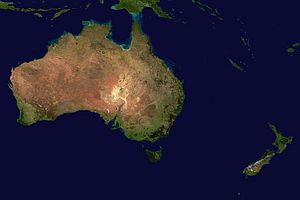In its response to the coronavirus pandemic, Australia is doing relatively well. As of April 17, the country has 6,522 confirmed cases of the coronavirus and recorded 66 deaths. For a country of 25 million people, with a globally connected economy, a predominantly urban population, and a large tourist industry, these figures can be considered positive in the larger scheme of the pandemic. While every death is a tragedy, Australia has been able to limit the virus’ impact.
There is one obvious feature that has enabled Australia to restrict the spread of the virus. The country is blessed by advantageous geography that has allowed it to seal itself off from the world and prevent new sources of the virus entering. This has made it very easy for Australia to quickly become less concerned with new sources of the virus and focus its efforts on preventing community transmission related to existing cases.
Yet one other factor may have been influential in Australia’s response, that of public trust: both trust in the competency of Australian governments, and trust between individuals in Australian society. Despite the country’s recent political instability — with its incessant culture of party leadership challenges — Australia has remarkable stability within its civil society. This includes a significant amount of social cohesion among its highly diverse population, although there have unfortunately been recent reports of racist abuse against Asian-Australians due to the incredible ignorance of some people.
In general, however, Australia has a cooperative public spirit, although in recent years the country has not been immune to the degradation of public trust that has befallen many Western countries. The country’s faith in liberal democracy has been diminished by a culture of knee-jerk partisanship, the re-emergence of group identity as a major driver of political discourse, social media siloing people’s worldviews, and conventional media shifting their business models away from objective reportage toward political advocacy.
Yet the coronavirus seems to have pulled the Australian public back toward an understanding of the country’s collective good. It has given the public a greater sense of national purpose. The virus has provided a reason to put aside emotive and ideological considerations and to instead seek out quality information, and heed the advice of people who have relevant expertise.
Of course, there are a number of conspiratorial reactions to the virus that exist from a variety of political perspectives, but these seem to be minimal enough to not be having any significant impact. And while political commentators and organizations that usually spruik for the governing Liberal Party and its coalition partners have tried to play down the virus — seeking to undo the strict lockdown regulations — the federal government itself has been disciplined and responsible. The government has listened to the advice of medical experts and worked to create the necessary structures to limit the spread of the virus.
One initiative that has allowed the public to gauge the scope of the situation and reposition their usual approaches to the country’s politics has been the formation of a “National Cabinet.” This is a temporary body that includes the prime minister and all the state premiers and territory chief ministers, designed to allow the two levels of government to pool their resources, coordinate their responses within overlapping jurisdictions, and provide a clear and consistent message to the public from the various leaders (although there were some early exceptions). That the National Cabinet consists of an almost even number of leaders from both major political parties also signals to the public that the pandemic needs to be placed above any partisan considerations.
Despite the overall success of this coordinated approach to the pandemic, there has been one notable failure of governance. In mid-March, 2,700 passengers from a cruise ship were allowed to freely disembark in Sydney despite several passengers demonstrating symptoms of the coronavirus. This failure to properly screen passengers has led to around 10 percent of Australia’s total cases of the virus, causing 19 deaths. The New South Wales and federal governments have both sought to blame each other for the lack of procedures put in place to properly administer the situation.
Yet Australians watch the news and are aware that other countries are suffering far worse outbreaks of the pandemic, and that the overall response from their governments have been competent given the circumstances. After some initial teething problems the public’s own personal respect for social distancing measures has been excellent and it is clearly working.
Stepping back for a wide-angle view of the situation, Australia has had all the basic building blocks in place that have allowed it to cope well with a unique and pervasive problem like the coronavirus. The country provides good education, health, and other public services to its citizens, and has economic and civic structures that provide most people with access to opportunities and decent livelihoods (with some serious exceptions, like indigenous Australians). Australia also has a professional and apolitical bureaucracy and trustworthy democratic institutions. While the country is often unenthusiastic about its public representatives — and complaining is a prominent national pastime — it does have an instinctive trust of its public institutions.
This has arguably proved critical in being able to create the conditions to limit the spread of the coronavirus in Australia and keep its casualties relatively low. Maintaining this civic trust as the country starts to feel the economic costs of the pandemic will be its next great challenge.
































